Rochester Community and Technical College is a member of the Minnesota State system. The Board of Trustees governs the statewide system of community and technical colleges and state universities.
RCTC’s President reports to the Minnesota State Chancellor. The President’s Office is the focal point for plans, policies, and operational decisions crucial to institutional progress; and to fulfill the responsibilities of administration, the President’s Cabinet consists of whose responsible for specific functions of the College.
President’s Cabinet
The President’s Cabinet is a decision-making group, established to set priorities, establish goals and budgets, and advise the President on matters of substantial importance to the College. (Click on titles to view the organizational charts for each area.)
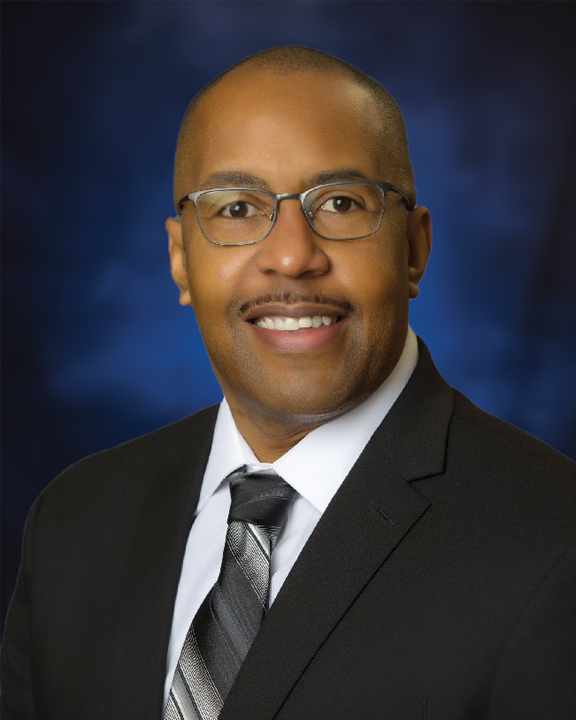 President
President
Jeffery S. Boyd, Ed.D • SS204 • 507-285-7215 • jeffery.boyd@rctc.edu
The President is the chief executive of the College and executes directly or by delegation, all executive and administrative duties in connection with the operations of the College.
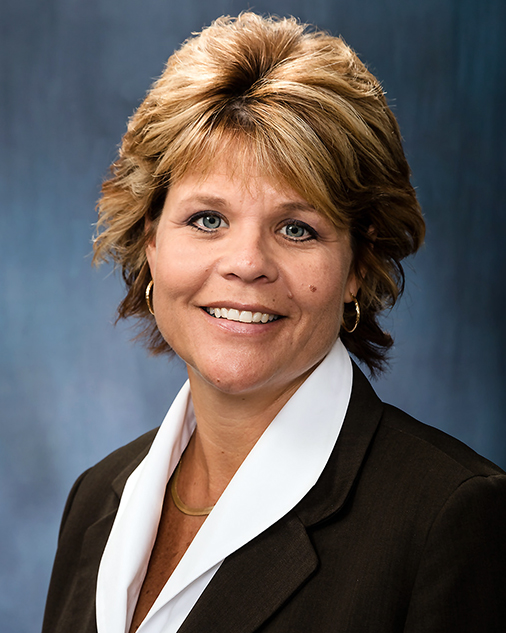 Vice President of Academic Affairs (Chief Academic Affairs Officer)
Vice President of Academic Affairs (Chief Academic Affairs Officer)
Michelle Pyfferoen, M.B.A • SS218 • 507-285-7256 • michelle.pyfferoen@rctc.edu
The Vice President of Academic Affairs is the Chief Academic Officer with responsibility for the development/ coordination of the College’s instructional programs and oversees the College’s accreditation. Academic Deans report to the Vice President of Academic Affairs.
 Vice President of Student Affairs (Chief Student Affairs Officer)
Vice President of Student Affairs (Chief Student Affairs Officer)
Teresa Brown, Ph.D. • SS208 • 507-285-7217 • teresa.brown@rctc.edu
The Vice President of Student Affairs is the Chief Student Affairs Officer with responsibility for the College’s student services areas (i.e., admissions, advising, financial aid, and student life), working in close collaboration with academic affairs, the position is responsible for developing opportunities that bridge academic and student affairs programs.
 Vice President of Finance and Facilities (Chief Finance Officer)
Vice President of Finance and Facilities (Chief Finance Officer)
Kelly Pyfferoen, M.B.A • SS157 • 507-285-7472 • kelly.pyfferoen@rctc.edu
The Vice President of Finance and Facilities is the Chief Financial Officer with responsibility for the College’s business affairs, auxiliary enterprises, safety, security and facilities.
 Interim Chief Human Resources Officer
Interim Chief Human Resources Officer
Karen Miller • Remote • 507-280-5007 • karen.miller@rctc.edu
The Chief Human Resources Officer has responsibility for employee relations and labor agreements. The position serves as the College’s Affirmative Action Officer and Americans with Disabilities Act (ADA) Coordinator.
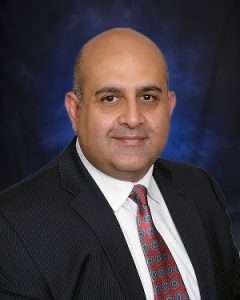 Chief Information Officer
Chief Information Officer
Mirwais Qader, E.M.B.A. • CF213 • 507-281-7787 • mirwais.qader@rctc.edu
The Chief Information Officer is responsible for providing technology strategic leadership and executive management of all information technology including cyber security, technology risk management, administrative and academic computing, and media related technology.
President’s Office

Executive Assistant to the President
Megan Tate • SS203 • 507-285-7216 • megan.tate@rctc.edu
The Executive Assistant supports the President and provides guidance to the Cabinet in expectations set by the President. The position is a point of contact for the President’s Office and is the liaison/key communication link between the President and the various constituency groups.
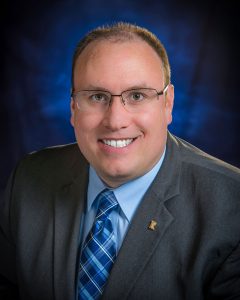
Executive Director of Communications, Marketing and External Relations
Nate Stoltman, M.A. • EA133 • 507-536-5604 • nate.stoltman@rctc.edu
The Executive Director of Communications, Marketing and External Relations is responsible for leading the College’s marketing, advertising, public/media/community relations and communication programs, and assists in identifying goals and strategies to further the College mission.
In addition to the President’s Cabinet and President’s Office, Deans and Associate Deans assist the President in setting the College’s strategic direction. (Click on titles below to view the organizational charts for the remaining areas.)
 Dean of Liberal Arts and General Education
Dean of Liberal Arts and General Education
Laura Wind-Norton, M.S. • M2401 • 507-280-3502 • laura.wind-norton@rctc.edu
 Dean of Sciences and Health Professions
Dean of Sciences and Health Professions
Jason Jadin, M.S. • HS107 • 507-536-5681 • jason.jadin@rctc.edu
 Dean of Career, Technical, Business and Workforce Education
Dean of Career, Technical, Business and Workforce Education
Allison Mason, DBA • H1001C • 507-280-3152 • allison.mason@rctc.edu
Associate Vice President of Academic Operations and Institutional Effectiveness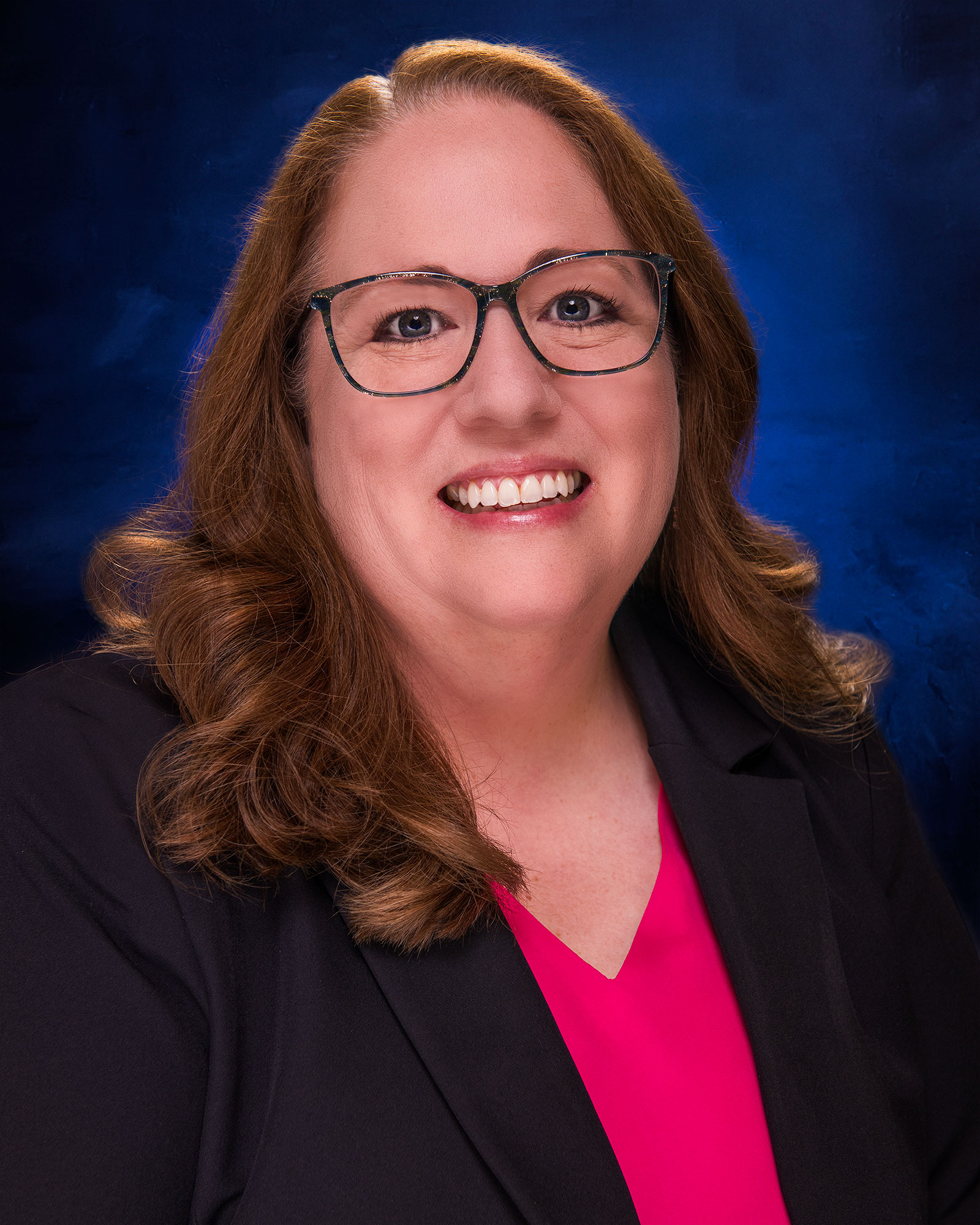
Alissa Oelfke, Ph.D. • SS306 • 507-285-7245 • alissa.oelfke@rctc.edu
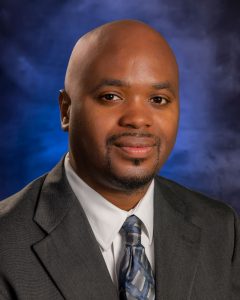 Dean of Student Success
Dean of Student Success
Larry Frazier • SS139 • 507-280-5504 • larry.frazier@rctc.edu
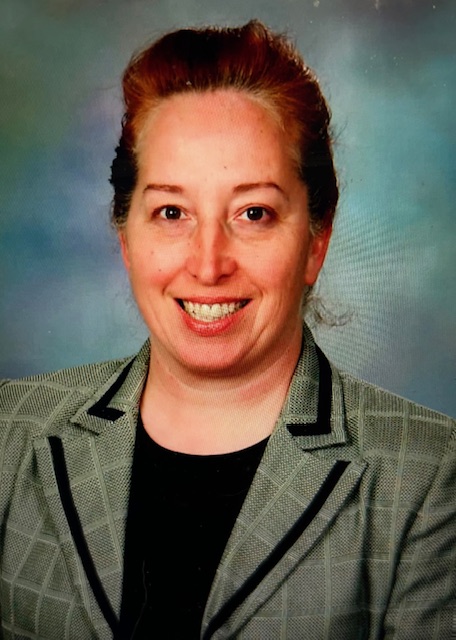 Associate Dean of Nursing
Associate Dean of Nursing
Annette Caflisch, M.S.N., Ed.D., R.N. • HS105 • 507-285-7143 • annette.caflisch@rctc.edu
 Dean of Academic Services, Support, and Innovation
Dean of Academic Services, Support, and Innovation
Jennifer Hewerdine, Ph.D. • GL219 • 507-280-5081 • jennifer.hewerdine@rctc.edu
 Associate Dean of Career and Technical Education
Associate Dean of Career and Technical Education
(See Dean of Career and Technical Education and Foundation Director Organizational Chart above)
(Vacant) H1005 • 507-529-2720
2025-26 Committees
CONTRACTUAL/CONSTITUENCY COMMITTEES
Shared governance is recognized as a significant and necessary part of RCTC’s operation. The following are established by bargaining contracts or policy to ensure shared governance.
AFSCME Labor/Management: Per Article 31, Section 3 of the AFSCME Agreement, a local Labor/Management Committee shall be established for the purpose to improve communications between the College and the local union, and to serve as a forum in which issues of mutual concern can be discussed.
MAPE Meet and Confer: Per Article 32 of the MAPE Agreement, a local Meet and Confer Committee is established for the purpose of improving communications between the College and the Local MAPE Union and serve as a forum for issues of mutual concern.
MSCF Academic Affairs and Standards Council (AASC): Per Article 8, Section 2 MSCF Master Agreement, the purpose of AASC is to provide a forum to which management and faculty bring all proposals regarding academic affairs and standards. The purpose of the Council is to provide direction for the President’s designee (Vice President Academic Affairs) in all matters included in academic affairs, including course outlines, award requirements, academic standards, course and program components and the inventory of course and program offerings. In addition, a locally established Academic Standards subcommittee currently exists under AASC with a charge of hearing and acting on unique academic appeals and formulating policy recommendations on repetitive academic appeals.
MSCF Faculty Shared Governance Council (FSGC): Per Article 8, Section 1 MSCF Master Agreement, FSGC meets with the President and Vice Presidents for the purpose of a forum to make recommendations to the President on the following topic areas: Personnel, Student Affairs, Facilities, Fiscal Matters and General Matters. The Council has full authority to present the views of the faculty in these meetings. In addition, a locally established Faculty Evaluation subcommittee currently exists under FSGC with a charge of reviewing and forwarding recommended changes for the faculty evaluation process and forms; Faculty Development is charged with identifying and assisting in planning faculty development opportunities, and FIDG is charged with reviewing FIDG applications and determining grant awards for faculty proposals.
Campus Safety: Per Article 11, Section 2 of the AFSCME Agreement and Article 22, Section 4 of the MAPE Agreement, a safety committee is established to conduct safety/health inspections throughout the campus, and develop recommendations pertaining to all aspects of safety and security for students, staff and visitors to the campus.
Senate/Cabinet: The Student Senate Executive Board meets with the President’s Cabinet and Director of Student Life as an opportunity for the Student Senate to share input on campus operations, curriculum, student life, general matters, and other issues of mutual concern through a forum process. In addition, other student committees are established by the Student Senate to provide input into issues pertinent to student life.
Student Conduct Board: Reviews evidence and witness testimony to determine whether a violation of Student Conduct occurred, and determines any applicable sanction(s) if the Student Conduct Policy is violated.
2025-26 Strategic Committees
Four Strategic Committees are established to lead and implement College Strategic Plan goals and strategies:
- Student Success: Coordinates collaboration across departments to identify barriers and promote resources to create an inclusive, supportive, and engaging learning environment that empowers students to achieve their academic, personal, and professional goals.
- Assessment of Student Learning (ASL): Subcommittee of Student Success Committee, charged with implementing the initiatives laid out in the Institutional Assessment Plan to verify academic and co-curricular programs are achieving the intended program and institutional learning outcomes.
- Institutional Effectiveness: Creates and sustains a culture of excellence and continuous quality improvement by providing leadership, direction, and support for quality initiatives and providing evidence-based recommendations to the campus leadership team.
- Campus Unity: Coordinates programs and initiatives to increase academic success for underrepresented students, create a welcoming climate, and align efforts with the College’s strategic plan and Minnesota State’s Equity 2030 plan.
- Community Impact: Coordinates programs and initiatives to increase academic success for underrepresented students, create a welcoming climate, and align efforts with the College’s strategic plan and Minnesota State’s Equity 2030 plan.
Operational Teams
Each Division of the College establishes teams to complete a specific operational function. These teams may or may not be cross-functional, depending on their charge.
ACADEMIC AFFAIRS:
- Developmental Education: Charged with aligning RCTC Developmental Education strategies and initiatives with the system office, with a current focus on the math pathways and to develop a co-requisite English model.
- Institutional Review Board (IRB): Responsible for performing ethical review of proposed research involving human subjects and monitoring continuing research. Such research requests must be submitted and approved by the Vice President of Academic Affairs before implementation.
- Online Education: Oversees the implementation of the Online Education Strategic Plan, Workplace, continuous quality improvement for online education and academic technology, and provides updates and recommendations to College Leadership.
STUDENT AFFAIRS:
- Commencement Planning: Plans the Spring Semester Commencement Ceremony, including recommending speakers and coordinating the event.
- Strategic Enrollment Action Team (S.E.A.T.): Responsible for developing activities that advance our enrollment efforts and to develop strategies to maximize student recruitment and retention using market research. The overarching goal is to increase our student enrollment and retention. Sub-Teams may be formed to evaluate and develop specific strategic activities. The work will be done in conjunction with other operational teams, strategic committees, and other committees.
- Student Success Day: Plans the Fall Semester Student Success Day activities
FACILITIES AND FINANCE:
- Campus Safety: In compliance with some bargaining agreements, primary responsibility is to adequately address employee safety issues comprehensively and inclusively at the campus and ensure all campus employees have representatives advocating for their safety on campus. Members must solicit employee safety concerns and present them at the meetings and shall champion performance and implementation of programs that promote safety. The team will conduct inspections of worksites at least annually; review campus training records to ensure compliance; make recommendations on to the campus administration; and address environmental health and safety issues.
INFORMATION TECHNOLOGY:
- Information Technology Council: This team defines effective and College-wide IT operational policies, standards, procedures and guidelines. It defines a balanced resource management approach for projects and operational work. It evaluates key technology project requests and recommends those that should be considered for investment by the College.
- NextGen Local Transition Management Team: Due to the size and scope of Minnesota State, the NextGen project will engage every institution for their assistance in complex set of activities and communications. Local teams of cross-functional leaders/subject matter experts serve a critical function to connect each institution to NextGen.
Special Committees
- Bias Incident Response Team: This Team is mandated by Minnesota State and is responsible for responding to bias incidents by providing support, resources, and referrals to those harmed, and by updating and providing development opportunities to the campus community as warranted.
- RCTC Foundation Board of Directors: The RCTC Foundation is an independent board of directors that exists to influence the quality of student programs at RCTC. Through active, ongoing campaigns to promote philanthropy in the community, the Foundation aims to grow a diverse amount of resources sufficient to provide affordable education for all students, add value and excellence to the programs offered at RCTC, and help insulate the institution for future economic and political forces by filling in gaps in state funding.
- Student Conduct Panel: This panel is established under RCTC Policy 3.6 (Procedure 3.6.1 Student Conduct and is charged with reviewing evidence & witness testimony to determine whether a violation of Student Conduct occurred and determines any applicable sanction(s) if the Student Conduct Policy is violated.
- CARE Team: The charge of the CARE team is to provide care and support for students who may be in distress and to work to prevent student behaviors that are disruptive or pose a threat to the College Community.
- Fun Team: Fosters a pleasant, personable, and enjoyable environment.
_____________________________________________________________________________________
Various academic program advisory committees also exist to advise on the design, development, implementation, evaluation, maintenance and revision of career/technical programs within career pathways.
